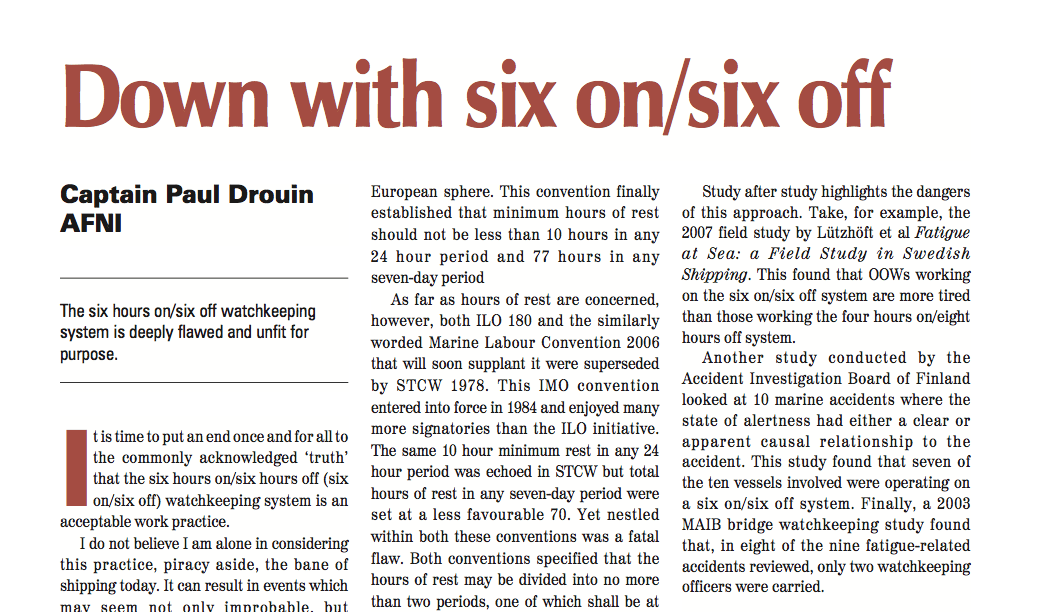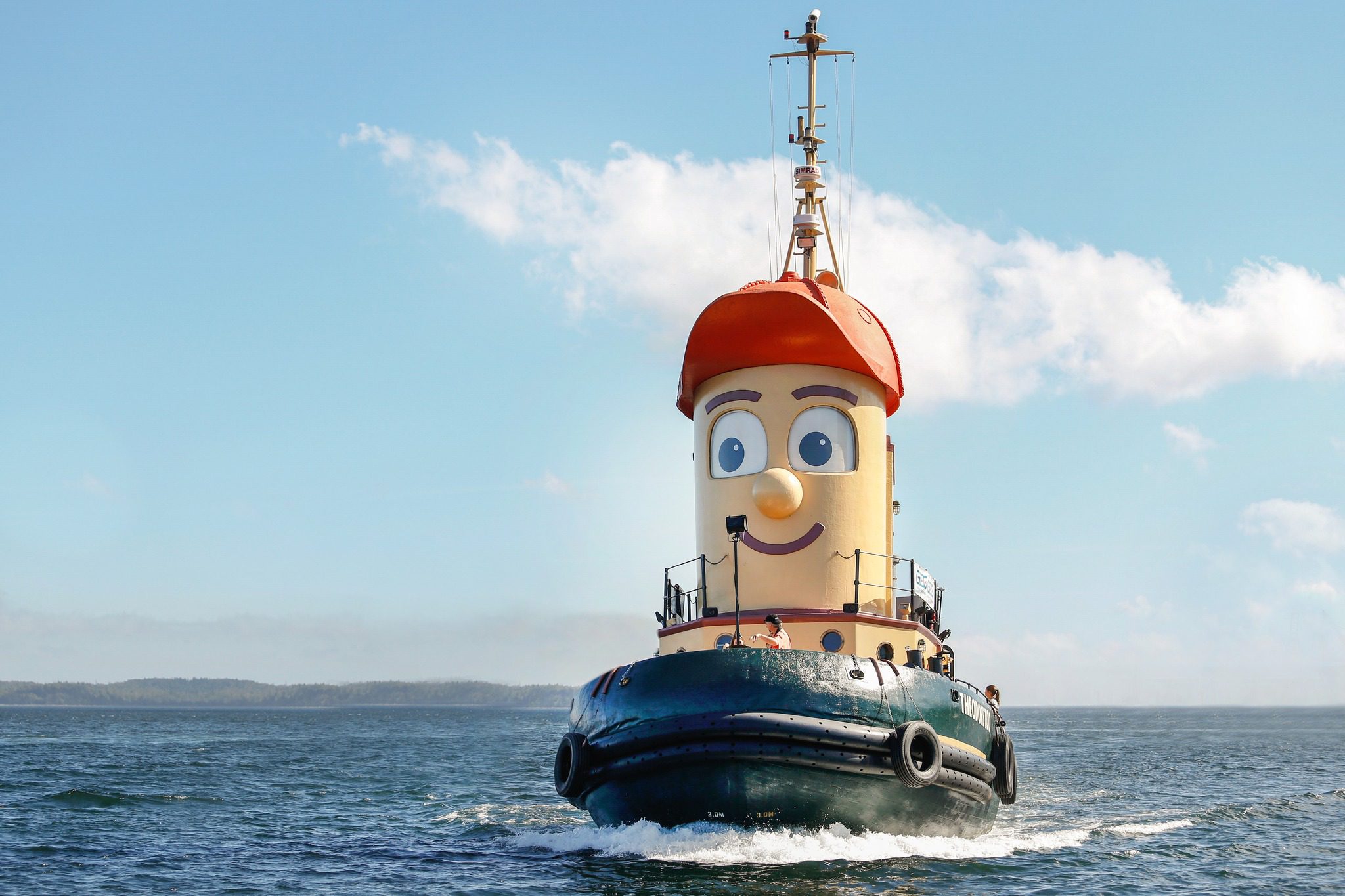First published in the April 2011 issue of the Nautical Institute’s Seaways magazine, Paul Drouin of Safeship.ca wishes to put to rest, once and for all, the commonly acquiesced ”truth” the that 6 On/6 Off watchkeeping system is an acceptable work practice. He writes:
It is time to put an end once and for all to the commonly acknowledged ‘truth’ that the six hours on/six hours off (six on/six off) watchkeeping system is an acceptable work practice.
I do not believe I am alone in considering this practice, piracy aside, the bane of shipping today. It can result in events which may seem not only improbable, but downright unbelievable. In a report from the UK Marine Accident Investigation Branch (MAIB) on the grounding of a vessel in 2008, for example, we read: ‘It is probable that the chief officer fell asleep shortly after taking over the watch at midnight, and then remained asleep for more than three hours until the vessel grounded.’
It is hard to find another trade or industry that has its members work on such a retrograde, counterproductive and outright dangerous schedule. Yet this system is accepted by IMO, the International Labour Organisation (ILO), flag state administrations, ship-owners and operators and even watchkeepers as a matter of course. But to do away with this, it is worth first looking at how it came about, and how it continues to be implemented.
Work/rest in context
In 1958, the ILO Convention C109 defined ‘normal hours of work’. For watchkeeping officers on near-trade ships at sea these normal hours of work were to be not more than 24 hours in any period of two consecutive days. Alternately, watchkeepers on distant trade ships, while at sea, had their normal hours of work set at not more than eight hours in any one day. Anything more was considered overtime – so minimum rest periods were still an illusion.
These early initiatives, however, lacked a broad application as few countries ratified the conventions. In 1996, ILO 180 was adopted and later ratified by a good many countries, albeit mostly in the European sphere. This convention finally established that minimum hours of rest should not be less than 10 hours in any 24 hour period and 77 hours in any seven-day period.
As far as hours of rest are concerned, however, both ILO 180 and the similarly worded Marine Labour Convention 2006 that will soon supplant it were superseded by STCW 1978. This IMO convention entered into force in 1984 and enjoyed many more signatories than the ILO initiative. The same 10 hour minimum rest in any 24 hour period was echoed in STCW but total hours of rest in any seven-day period were set at a less favourable 70. Yet nestled within both these conventions was a fatal flaw. Both conventions specified that the hours of rest may be divided into no more than two periods, one of which shall be at least six hours in length.
The weak point
While 10 hours of rest are highly commendable, having only six hours of ‘guaranteed’ continuous rest certainly is not. Let’s have a closer look to see why this is the weak point of the whole affair.
It has been shown in study after study over the last 50 years that human beings need seven to eight hours of continuous sleep for that sleep to be restorative. Without adequate restorative sleep, they cannot perform optimally. According to authors Smith, Allen and Wadsworth from their paper A Comparative Approach to Seafarers’ Fatigue, while a six hour sleep period may be adequate for one day, it is not sufficient on a regular basis. They concluded that anything less would lead to accumulated sleep debt and will impact on performance.
In other transport sectors, such as aviation and trucking, six on/six off work schedules are no longer condoned. In some cases, they never were. For example, in many countries bus drivers are permitted to work up to 14 hours in one day, but they must receive at least eight consecutive hours off duty before starting a new shift. This requirement ensures sufficient consecutive hours of rest.
Seafarers, however, are expected to carry out their duties safely even if they have had fewer consecutive hours of recuperative sleep than most human beings need….

 Join The Club
Join The Club











